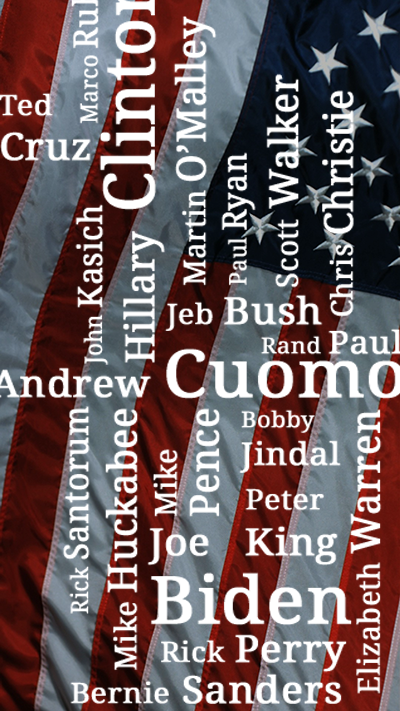
Five ‘Lanes’ in GOP Nomination Contest?
Phillip Bump has an intriguing analysis of the 2016 GOP nomination battle over at the Washington Post, arguing there are basically five ‘lanes’ in the contest that the different candidates are competing in. Huckabee and Santorum, for example, are seen as the two candidates expected to challenge each other for dominance in the ‘Evangelical’ lane (although others will certainly try to grab some of that vote as well).
The 2016 GOP presidential race, broken down into 5 ‘lanes’
Ted Cruz, we argued in February, is the most underrated candidate in the 2016 field -- for the simple reason that he can make a strong play for solo ownership of the Tea Party "lane" of the primary electorate. If Cruz can carve out enough consistent votes from that group to stick around a while, we argued, his overall support could snowball as other candidates drop out. Other candidates, the theory goes, are in other, more crowded lanes in which they could split up the vote: Jeb Bush in the moderate/establishment lane along with a few others, Rick Santorum and Mike Huckabee in the Evangelical lane (which Cruz made a play for on Monday as well), etc.
But how big are those lanes? And who's dominating in which lane? Let's say there are five lanes:
- Religious voters
- Tea Party voters
- Very Conservative voters
- Moderate/Establishment voters
- Libertarians
We can dispatch with the last one first; there simply isn't a lot of reliable recent polling on the overlap of Republicans and libertarian philosophy….
In 2012, libertarian-Republican Ron Paul vacuumed up 10.7 percent of the overall primary vote, though some of that came after the nomination was settled. That might be the size of the electorate, but it also likely answers another question: Who can count on that support. Here's a hint: His last name rhymes with "Paul" ... in the sense that it is "Paul."
As for the other four, we can't talk about them without pointing out that our analogy has a rather large flaw. We develop these lanes as a rhetorical device, but the lines between the lanes are not clear…
It’s an interesting read, and provides some good insights into where each candidate may be able to draw their strength from.



